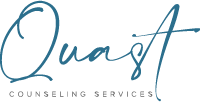1. Don’t regard this as a family disgrace. Addictive behavior is something all humans express to some degree or the other. When it “Gets out of Hand”… Humans Can and DO make Changes.
2. Don’t nag, preach or lecture to the person. Chances are he/she has already told him or herself everything you can tell them. He/she will take just so much and shut out the rest. You may only increase their need to lie or force one to make promises that cannot possibly be kept.
3. Guard against the “holier-than-thou” or martyr-like attitude. It is possible to create this impression without saying a word. A person’s sensitivity is such that he/she judges other people’s attitudes toward him/her more by small things than spoken words.
4. Don’t use the “if you loved me,” appeal. Since addictive behavior is compulsive…this approach will very likely increase counterproductive guilt.
5. Avoid any threats unless you think it through carefully and definitely intend to carry them out. There may be times, of course, when a specific action is necessary to protect children. Idle threats only make the person feel you don’t mean what you say.
6. Don’t hide the drugs/alcohol or dispose of them/it. Usually this only pushes the person into a state of desperation. In the end he/she will simply find new ways of getting more drugs/liquor.
7. Don’t let the person persuade you to use drugs or drink with him/her on the grounds that it will make him/her use less. It rarely does. Besides, when you condone the using/drinking, he/she puts off doing something to get help.
8. Don’t be jealous of the method of change the person chooses. The tendency is to think that love of home and family is enough incentive for seeking change. Frequently the motivation of regaining self-respect is more compelling for the person than resumption of family responsibilities. You may feel left out when the person turns to other people for helping stay sober. You wouldn’t be jealous of the doctor or someone needing medical care, would you?
9. Don’t expect an immediate 100 % change. In this effort, there is a period of “convalescence.” There may be relapses and times of tension and resentment.
10. Don’t try to protect the person from using/drinking situations. It’s one of the quickest ways to push one into relapse. They must learn on their own to say “no” gracefully. If you warn people against serving him/her drinks, you will stir up old feelings of resentment and inadequacy.
11. Don’t do for the person that which he/she can do for him/herself. You cannot take the medicine for him/her. Don’t remove the problem before the person can face it, solve it or suffer the consequences.
12. Do offer love, support and understanding in the recovery.
- Log in to post comments

